NIL
Eric Wolford received one-year contract extension, raise from Kentucky
A big season is on the horizon for the Kentucky football program. Head coach Mark Stoops has decided to lock up one of his top assistants heading into the final year of his contract. Offensive line coach Eric Wolford has signed a one-year contract and received a $100,000 dollar pay bump in July, according to […]

A big season is on the horizon for the Kentucky football program. Head coach Mark Stoops has decided to lock up one of his top assistants heading into the final year of his contract.
Offensive line coach Eric Wolford has signed a one-year contract and received a $100,000 dollar pay bump in July, according to Kentucky’s Office of Legal Counsel. Wolford will make $900,000 in 2025 and $925,000 in 2026.
The 54-year-old was a member of the Kentucky football staff in 2021 before leaving to become the offensive line coach at Alabama. Eric Wolford spent two years in Tuscaloosa but became a free agent after the 2023 season when Nick Saban retired. Kentucky quickly agreed to terms with the Youngstown native that offseason. Wolford earned $350,000 from UK in 2024. That low number was due to the amount of money Alabama still owed the SEC veteran.
According to the term sheet, Eric Wolford’s original buyout has not changed. The offensive line coach would owe UK $500,000 for each year remaining on his contract if he leaves Lexington for another coaching job again. This new amendment was signed on an unspecified day in March.
Kentucky now has four assistant coaches under contract for more than one season: Wolford, Bush Hamdan, Vince Marrow, and L’Damian Washington. Every other assistant contract expires at the end of the 2026 season. Stoops is signed through the 2031 season. The long-time head coach made $9 million in 2024.
Kentucky coaching salaries in 2025
| Coach | Job | Salary |
| Brad White | Defensive Coordinator/Outside Linebackers Coach | $1.7 million |
| Bush Hamdan | Offensive Coordinator/Quarterbacks Coach | $1.35 million |
| Vince Marrow | Recruiting Coordinator/Tight Ends Coach | $1.3 million |
| Eric Wolford | Offensive Line Coach | $900,000 |
| Mike Stoops | Linebackers Coach | $700,000 |
| Jay Boulware | Special Teams Coordinator/Running Backs Coach | $575,000 |
| Anwar Stewart | Defensive Line Coach | $525,000 |
| Chris Collins | Co-Defensive Coordinator/Defensive Backs Coach | $500,000 |
| Frank Buffano | Safeties Coach | $440,000 |
| L’Damian Washington | Wide Receivers Coach | $400,000 |
NIL
U.S. Soccer Pushes Big College Plans as National Team Struggles
On the same day the U.S. men’s national team laid a 4-0 egg against Switzerland in a friendly, getting booed off the field at halftime of a fourth straight loss Wednesday, U.S. Soccer laid a big bet: that the organization can transform the sport at the college level and create a world-class minor league. The […]
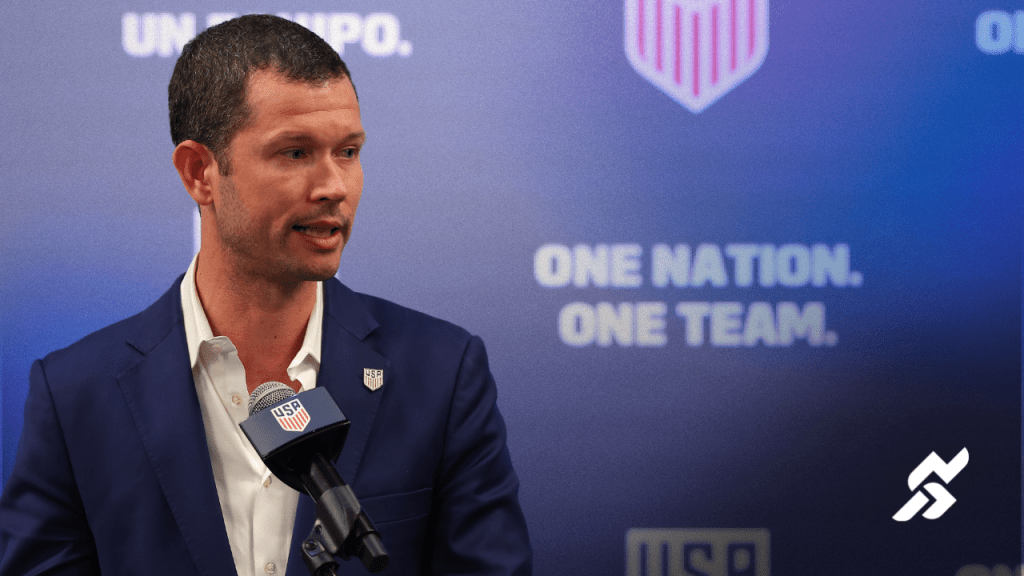
On the same day the U.S. men’s national team laid a 4-0 egg against Switzerland in a friendly, getting booed off the field at halftime of a fourth straight loss Wednesday, U.S. Soccer laid a big bet: that the organization can transform the sport at the college level and create a world-class minor league. The juxtaposition was stark.
Off the field, U.S. Soccer is aggressively pushing boundaries. By this fall, the national governing body said, the newly formed NextGen College Soccer Committee will issue a “white paper” on a path forward for college soccer, which in the past 15 years has become an afterthought in terms of elite player development. U.S. Soccer’s plan is for at least some college programs to compete under a revamped format as early as next year, perhaps with a new year-round playing calendar, expanded commercial objectives and far tighter links to the national governing body.
On the field, the men’s national team is in a defensive crouch. Fans and pundits are on the verge of panic after a string of dismal performances just a year out from the 2026 World Cup on home soil. The USMNT opens play in the CONCACAF Gold Cup on Sunday against Trinidad and Tobago; the tournament will be the squad’s last competitive matches before the World Cup.
While the men’s team is struggling, U.S. Soccer is on a roll organizationally, raising millions of dollars from well-heeled corporations and billionaire donors, building a new national training center and headquarters in Atlanta, and pushing proposals to expand the game’s reach in the country. The governing body can also point to the women’s national team, which has regained its perch atop the global game since the hire of head coach Emma Hayes last year.
In an interview with Sportico, U.S. Soccer CEO JT Batson expounded on his organization’s ambitious goals for the college game.
“The best 18- to 22-year-old soccer players in America are opting to play professionally now, and that shows the growth of the American soccer market,” Batson said. “It also shows the opportunity around evolving around college soccer—that it can become the best U-23 league in the world.”
The college reform efforts, part of a U.S. Soccer “service to soccer” initiative, will involve both men’s and women’s soccer. Batson says the committee has yet to work out the details, but the death of college-sports amateurism in the wake of NIL reforms and the House antitrust settlement will drive their discussions.
The potential for players to make money from NIL and revenue-sharing “is part of the reason why the folks from the pro leagues and some of the folks who own pro clubs think college can be a positive pathway for elite players,” Batson said. “But it’s going to require some changes, and that’s the heart of the work that everyone’s focused on.”
Existing college infrastructure, the chance for an education and the opportunity to make some money might be attractive to players who aren’t signed to million-dollar contracts with top clubs as teenagers. There may even be the possibility of MLS, NWSL or USL franchises using college squads as farm teams—which have become an area of interest for investors.
While player development is a focal point, commercial interests are also driving the moves.
“Most of the commercial energy and effort in college sports has been focused on football and men’s basketball,” Batson said. “There’s nobody waking up thinking about how to drive revenue at any sense of scale for college soccer. And we think there are opportunities, if you look at this as a nationwide platform, to be able to drive new commercial value in a way the prior model didn’t allow for.”
Such opportunities exist with media rights, for example, which Batson says are often “fragmented and highly localized” in college sports.
With more than 200 men’s and 300 women’s teams already in Division I, the sport could offer untapped national and regional sponsorship possibilities, especially with a year-long season and more talented players on rosters.
Speaking of players, any new format would likely include a geographical reorganization of competing teams. Recent conference realignments have led to “players living on planes,” Batson said. “From a student-athlete welfare standpoint, you have a lot of college leaders who believe we have to end up with more regional models than we have today.”
A huge hurdle will be the NCAA rulebook, which right now restricts pay-for-play, practice time and the length of the season. Changing that rulebook through the NCAA’s legislative process has historically been a glacial process.
Batson says the tumult in college sports gives soccer a chance to present a test case for a new era. “We’ve been in direct conversations with college presidents, with conference leaders, who are all very excited about soccer being able to help lead to a future model for a broad set of college sports. Everyone recognizes that status quo has its challenges,” and there’s been “an evolution of how college sports is thinking about its own governance and its own rules.”
When word leaked about U.S. Soccer’s nascent reform proposals presented to college coaches over the winter, the pitch was seen as a national governing body-sponsored “breakaway” of the college game from the NCAA.
As Sportico reported, early discussions included the Big Ten and ACC, who might form the basis of an experimental test conference. That prompted others in the sport to wonder whether successful mid-major programs such as national champion Vermont, along with fellow Final Four teams Denver and Marshall, might be shunted aside.
Batson emphasized that U.S. Soccer is “very agnostic as we start this process as what the future of governance model should be, and who is the quote-unquote organizer of the competitions. There’s so much change going on in college sports, we’re happy with any positive outcome that leads to more opportunities for players and coaches to develop. We don’t start with a preconceived notion of what that should look like.”
Though Batson didn’t say this, others in the sport have postulated that the new model could range from continued NCAA governance to an entity that eventually splits off completely from the association.
“We’ve been doing a whole body of work around this at U.S. Soccer with all of our stakeholders for quite some time now, and one of the things that bubbled to the top of the priority list was, ‘What does the next generation of college sports look like, and college soccer in particular?’” Batson said. “Conceivably, the right thing for year one may be different than a future state of things.”
NIL
Tennessee softball coach slams tampering after Taylor Pannell transfer
Coach Karen Weekly spoke out against tampering in the transfer portal a day after Tennessee softball All-America infielder Taylor Pannell transferred to Texas Tech. “I think we can all agree on 2 things: 1) women making money in sports is awesome and long overdue; 2) contacting players (directly or indirectly) before their season ends and […]
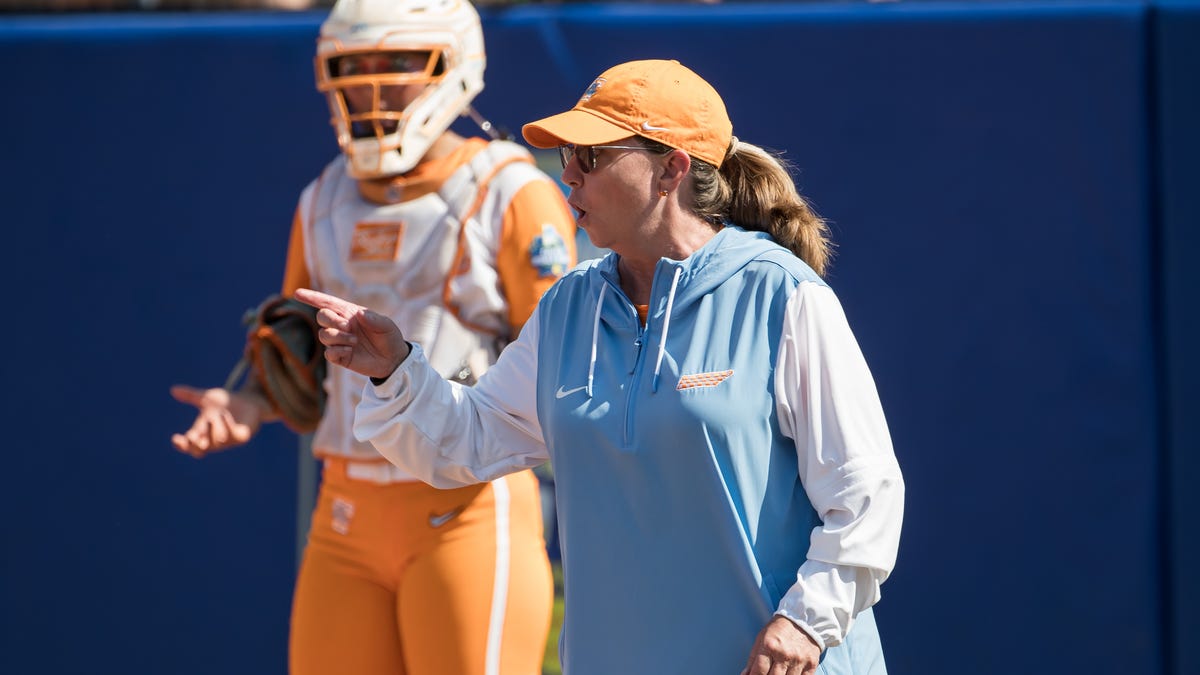
Coach Karen Weekly spoke out against tampering in the transfer portal a day after Tennessee softball All-America infielder Taylor Pannell transferred to Texas Tech.
“I think we can all agree on 2 things: 1) women making money in sports is awesome and long overdue; 2) contacting players (directly or indirectly) before their season ends and signing them to NIL deals before they enter the portal is wrong. Money isn’t the issue – tampering is!” the Lady Vols coach posted June 13 on X, the social media platform.
Weekly did not name Pannell or Texas Tech in her post. Pannell entered the portal on June 12 and committed to Texas Tech the same day.
Pannell was Tennessee’s top hitter this season as the Lady Vols reached the Women’s College World Series semifinals. The sophomore led the Lady Vols with a .398 batting average, 56 runs, 65 RBIs, 13 doubles and 34 walks. She also hit 16 home runs with a .747 slugging percentage and a .493 on base percentage.
Pannell was named a second-team NFCA All-American before becoming the most notable Lady Vols softball transfer departure in the portal era.
She chose Texas Tech, which has been aggressive in the portal since it finished as the runner-up at the Women’s College World Series to national champion Texas. It has been reported that Texas Tech will pay its players $55 million among all its programs next year between revenue sharing and NIL.
The Milan, Illinois, native is one of three All-Americans to transfer to Texas Tech, joining Ohio State slugger Jasmyn Burns and Florida infielder Mia Williams. Texas Tech has also added UCLA two-way player Kaitlyn Terry and Southern Illinois infielder Jackie Lis, who was the MVC MVP in 2024.
Pannell was a first-team All-SEC selection the last two seasons and she started in 122 of her 124 appearances at Tennessee. She is hitting .351 in her career with 25 home runs, 102 RBIs, 18 doubles, 83 runs and a .957 career fielding percentage.
Texas Tech signed junior ace pitcher NiJaree Canady to a one-year $1 million NIL contract with The Matador Club as a transfer from Stanford. Canady signed a new contract for her senior season during Texas Tech’s WCWS run for $1.2 million.
Knox News reporter Cora Hall contributed to this report
Mike Wilson covers University of Tennessee athletics. Email him at michael.wilson@knoxnews.com and follow him on X @ByMikeWilson. If you enjoy Mike’s coverage, consider a digital subscription that will allow you access to all of it.
NIL
From TikTok to Track & Field Star
In this episode of NILOSOPHY, Deja Kelly sits down with University of Texas standout Sam Hurley for his most personal and revealing conversation yet. From earning millions of followers online to navigating the highs and lows of NIL (name, image, and likeness) deals, collectives, and brand partnerships, Sam breaks down his journey as a college […]

In this episode of NILOSOPHY, Deja Kelly sits down with University of Texas standout Sam Hurley for his most personal and revealing conversation yet. From earning millions of followers online to navigating the highs and lows of NIL (name, image, and likeness) deals, collectives, and brand partnerships, Sam breaks down his journey as a college athlete and digital creator—and why he’s transferring for his final season.
Sam opens up about growing up in Arkansas and his journey to Division I track stardom, his decision to enroll early at Texas to capitalize on NIL, the truth about collectives, and more. Whether you’re an athlete, creator, or brand builder—this one’s a master class in identity, ownership, and the modern athlete’s mindset.
NIL
UVA Athletics announces $20.5 million revenue sharing plan for 2025-26 season
The Virginia Cavaliers shared a statement Thursday afternoon from Athletic Director Carla Williams regarding the recent House vs. NCAA settlement that permits universities to directly pay their athletes. The statement announced that the University will directly pay $20.5 million in the 2025-26 athletic season to their student-athletes, the maximum permitted under the court settlement. Since […]
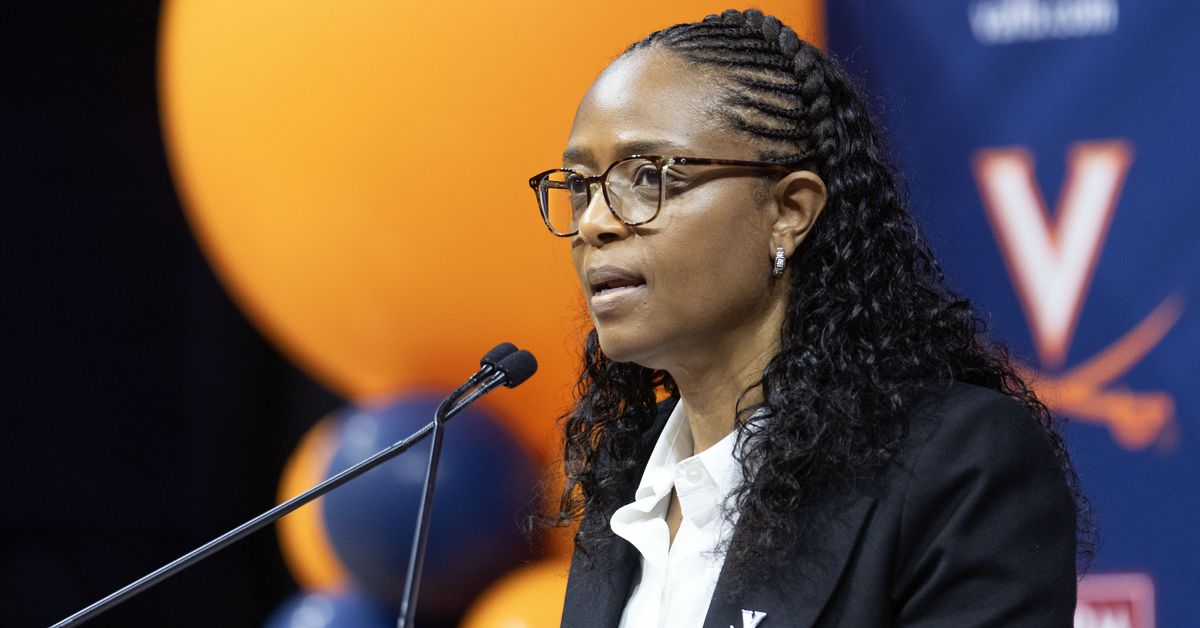
The Virginia Cavaliers shared a statement Thursday afternoon from Athletic Director Carla Williams regarding the recent House vs. NCAA settlement that permits universities to directly pay their athletes. The statement announced that the University will directly pay $20.5 million in the 2025-26 athletic season to their student-athletes, the maximum permitted under the court settlement.
Since 2021, student-athletes could earn money from name, image, and likeness (NIL) partnerships with third parties. Original NCAA guidance on NIL restricted schools and their respective employees from paying athletes directly or coordinating NIL deals on behalf of their athletes. Still, there was enormous room for flexibility, with state’s distinguishing their own parameters. Although many states were more progressive, the Commonwealth of Virginia passed legislation in 2023 allowing increased school involvement in NIL deals.
Now with the recent settlement, many of those early guardrails have been lifted. Starting July 1, the university can (and will) begin revenue sharing with athletes, in addition to scholarships and other benefits athletes receive. The settlement also approved NCAA to pay back $2.8 billion in damages to former athletes who could not participate in NIL prior to 2021.
In her statement, Williams shared that to remain competitive, UVA will need to invest in revenue sharing, scholarships, commercial NIL, and operations.
“Revenue sharing for revenue producing sports will fuel the viability and success of athletic departments moving forward,” the statement reads. It goes on to applaud the success of the Virginia Athletics Foundation (VAF) with a record $15.76 million in May 2025 and a record $22.6 million in endowment commitments in 2025 alone. Still, Williams’ tone is a call to action for increased support. “Now more than ever, we need your help to ensure a strong and sustainable future for Virginia Athletics.”
The statement called for continued investment and donations in order to “secure the future of Virginia Athletics,” said Williams, who signed a five-year extension in January. As of December 2024, UVA was ranked 14th nationally for its NIL collective support with approximately $12.1 million. But, with the loss of two hall-of-fame coaches from men’s basketball and baseball, a dragging football program, and the continued revolving door of the transfer portal, Williams is encouraging investments for stability in the new, developing era of college athletics.
To help navigate the change, the statement announced an upcoming podcast, including Williams and special guests, to dive deeper into the operations of UVA athletics.
It was commonly believed that the rise of NIL would open the door to a new kind of college sports. And, it’s nearly certain that the days of full-ride, athletic scholarship recruiting are over. It will take much more to attract top recruits. But, will this offer the roster stability UVA and college sports need?
Perhaps more importantly, some are wondering about the settlement’s effect on non-revenue sports—which, currently, are UVA’s top performing programs.
Still, UVA’s very own Kate Johnson is one of eight female student-athletes who filed an appeal in light of the settlement. The appeal claims that the pay-backs to former athletes prior to NIL violates Title IX anti discrimination because female athletes will be paid less than football and men’s basketball players. $2.8 billion in damages.
While NIL and revenue sharing continue to change the landscape of college sports and UVA athletics, it’s fair to expect continued development, regulations, and adjustments to the new, semi-professional model.
NIL
What we know about the landmark NIL settlement
(iStock) A landmark class-action settlement is poised to transform the business of college sports, paving the way for student-athletes to receive direct compensation for both past participation and future revenue sharing. The agreement covers athletes from 2016 to 2024 and includes $2.8 billion in back pay to be distributed over 10 years. Starting in July […]
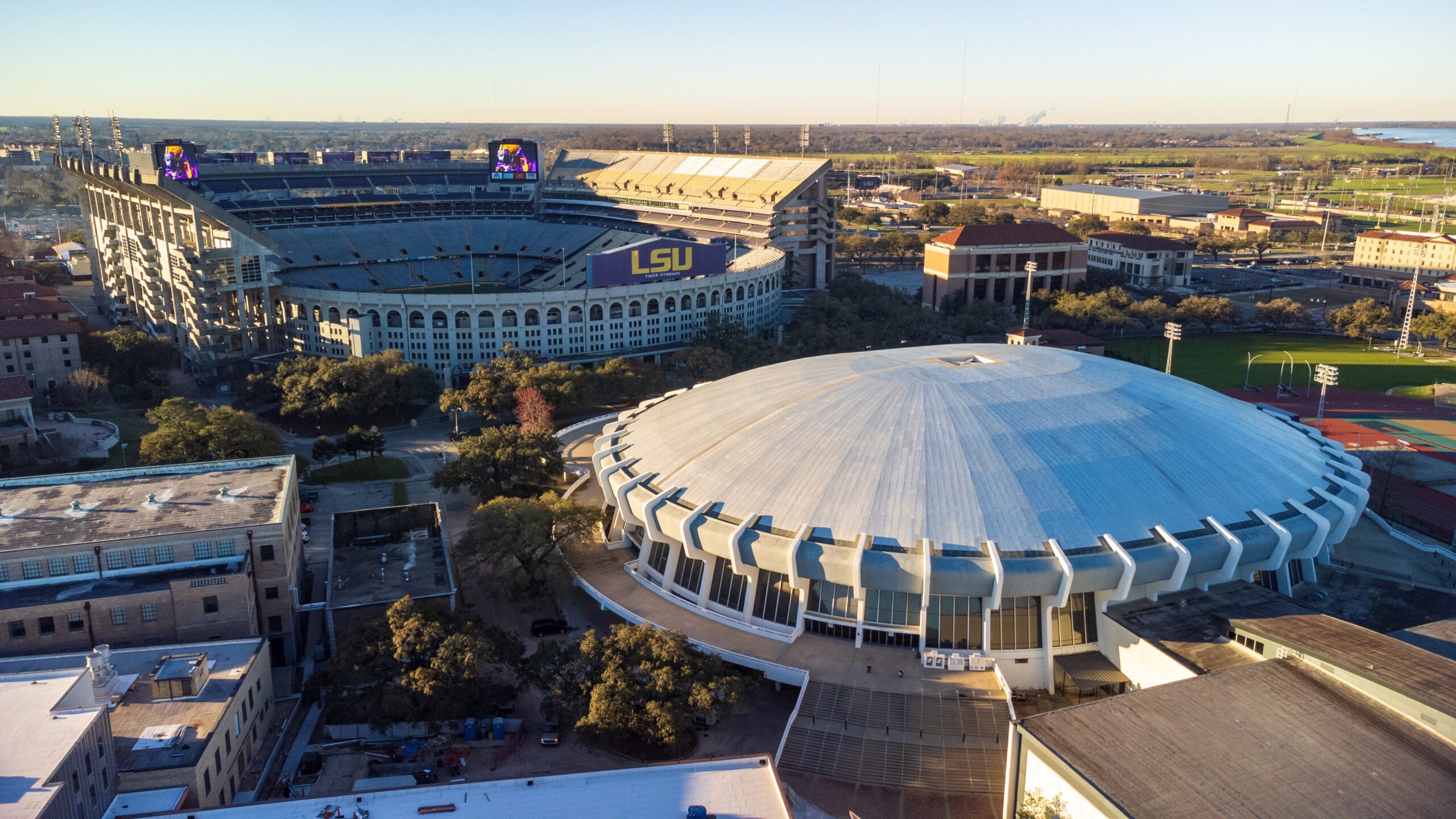

A landmark class-action settlement is poised to transform the business of college sports, paving the way for student-athletes to receive direct compensation for both past participation and future revenue sharing.
The agreement covers athletes from 2016 to 2024 and includes $2.8 billion in back pay to be distributed over 10 years. Starting in July 2025, each Division I school will also be able to share up to $20.5 million annually in athletic revenue with student-athletes under a new compensation model.
Fritz Metzinger, a sports attorney at Stone Pigman, tells Daily Report that while the NCAA will shoulder a significant share of the back pay, schools will also be required to contribute.
“The majority of it, based on a formula the NCAA and the schools came up with, is going to go to football, men’s basketball and women’s basketball players,” Metzinger says. “Not all of it, but a vast majority of it.
“As of July 1 for the 2025-2026 season, all power conference schools and any other Division I school that that opts in that wants to is going to be able to share up to, for this first year, about $20.5 million in athletic department revenue directly with their athletes,” Metzinger says. “They don’t have to share that full amount. Technically, under the settlement, they can allocate it however they choose.”
While individual schools can tailor how they distribute payments, LSU is expected to follow the NCAA’s damages-based formula: 75% to football, 15% to men’s basketball, and 5% each to women’s basketball and all other sports.
The allocation could raise concerns about underfunding successful nonrevenue programs, such as LSU’s baseball, gymnastics, and track and field programs.
“For LSU, I think it’ll benefit them, because the salary cap is about average for a power conference university,” Metzinger says. “LSU does better than that. They’re a successful athletic program, but they’ve got some interesting sports that excel but aren’t traditionally huge revenue builders.”
The settlement also includes provisions for a new College Sports Commission, which will oversee name, image and likeness deals exceeding $600, particularly those involving boosters or collectives.
“They’re going to review whether the deal is with a booster or a collective and then they’re going to see if the deal and the value of the deal is for a real business purpose,” Metzinger says. “Is it really a commercial, a sponsorship deal to appear in a few commercials for business, and are they getting paid? Or is it millions of dollars and the true purpose is to get somebody to come and play for their program?”
In March, Louisiana Gov. Jeff Landry issued an executive order shielding state postsecondary institutions from penalties by the NCAA or athletic conferences for facilitating NIL compensation. The order remains in effect until either a federal NIL law is enacted or the settlement takes effect.
While no conflicting statutes are currently in place, lawmakers have previously considered exempting NIL earnings from state income tax—legislation that could reemerge.
Metzinger anticipates additional legal challenges ahead.
“Federal law is going to be the only thing that calms it down,” he says. “But until then, there are going to be more lawsuits and more questions.”
Meanwhile, the Associated Press reported this week that eight female athletes have filed an appeal of the NCAA antitrust settlement, contending that women would not receive a fair share of the back pay allocated to athletes previously barred from profiting off their name, image and likeness.
NIL
Tennessee softball coach Karen Weekly addresses tampering rumors
In the world of NIL, tampering across college athletics is as prevalent as it’s likely ever been. This includes softball. In the case of Tennessee softball, it may have been the victim of tampering of one of its star players. As reported by Softball on SI, Texas Tech’s third-party NIL collective, The Matador Club, had […]
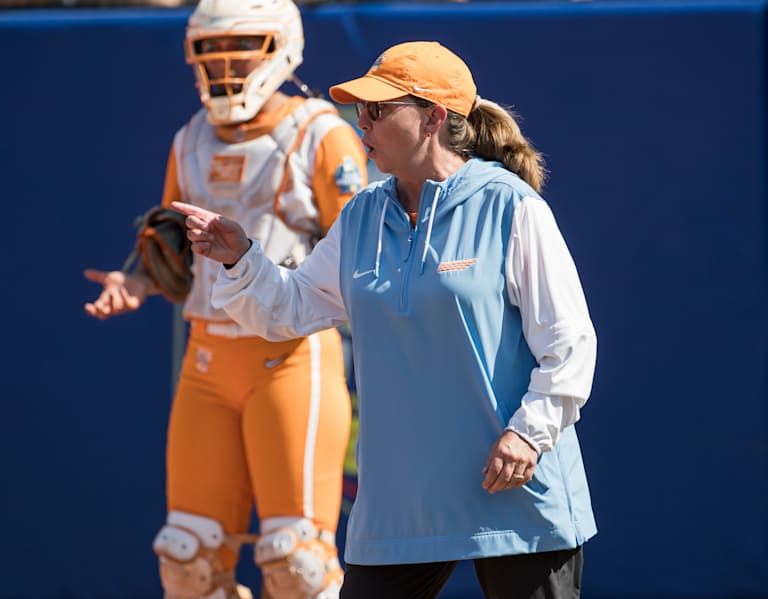
In the world of NIL, tampering across college athletics is as prevalent as it’s likely ever been.
This includes softball.
In the case of Tennessee softball, it may have been the victim of tampering of one of its star players. As reported by Softball on SI, Texas Tech’s third-party NIL collective, The Matador Club, had been in contact with top players throughout the season.
In the report, Lady Vols All-American third baseman Taylor Pannell was listed. She entered the transfer portal with a ‘Do Not Contact’ tag on Thursday and was publicly committed to the Red Raiders by the end of the night.
TALK ABOUT IT IN THE ROCKY TOP FORUM
With Tennessee losing the best returning bat in its lineup, Lady Vols coach Karen Weekly took to social media to give her thoughts on tampering and the prevalence of NIL. She never directly mentioned Pannell or Texas Tech in the post.
“I think we can all agree on 2 things:,” Weekly wrote. “1) women making money in sports is awesome and long overdue; 2) contacting players (directly or indirectly) before their season ends and signing them to NIL deals before they enter the portal is wrong. Money ins’t the issue – tampering is!”
Pannell is coming off her redshirt sophomore season where she dominated at the plate. The third baseman hit at a .398 average while smacking 16 home runs. This was good for 65 RBI and 56 runs.
While drawing 34 walks, her on-base percentage sat at .493 on the season. This helped result in First-Team All-SEC and All-American honors.
In 2024, Pannell was also a First-Team All-SEC member. She hit for a .294 average while lifting eight home runs. She notched 33 RBI and 23 runs on the year.
During that redshirt freshman season, she earned an SEC Freshman of the Week honor in early May.
As a true freshman, she appeared in seven games and started six. In just 14 at-bats, she hit a home run while recording four RBI and four runs. She missed the remainder of the year due to injury.
Pannell is from Milan, Illinois, where she played high school ball for Rock Island. She was considered the top third baseman and No. 4 overall prospect in the 2022 class by Extra Inning Softball.
So far this off-season, Tennessee has gotten off to a strong start in bringing in transfers. The Lady Vols have signed two-way EKU star Maddi Rutan and Boise State All-Mountain West First-Team members Sophia Knight and Makenzie Butt.
UT is coming off another strong season under Weekly. The Lady Vols made a trip to the Women’s College World Series and nearly defeated Oklahoma in the opening game.
Despite the walk-off loss to the Sooners, Tennessee rallied to make a push to the semifinals as one of the final four teams remaining. There, it fell to the eventual champions in Texas.
During the regular season, UT claimed series wins on the road over both Oklahoma and Texas, though.
The Lady Vols are also home to SEC Pitcher of the Year Karlyn Pickens who sung the praises of Tennessee after the final game of the season. There are currently no indications Pickens plans on entering the portal.
-

 Health1 week ago
Health1 week agoOregon track star wages legal battle against trans athlete policy after medal ceremony protest
-

 Professional Sports1 week ago
Professional Sports1 week ago'I asked Anderson privately'… UFC legend retells secret sparring session between Jon Jones …
-
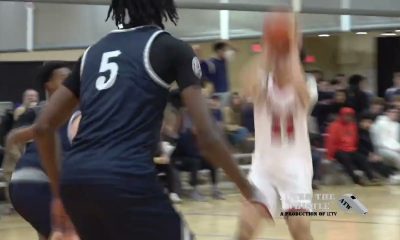
 College Sports2 weeks ago
College Sports2 weeks agoIU basketball recruiting
-

 NIL3 weeks ago
NIL3 weeks ago2025 NCAA Softball Tournament Bracket: Women’s College World Series bracket, schedule set
-

 Professional Sports1 week ago
Professional Sports1 week agoUFC 316 star storms out of Media Day when asked about bitter feud with Rampage Jackson
-
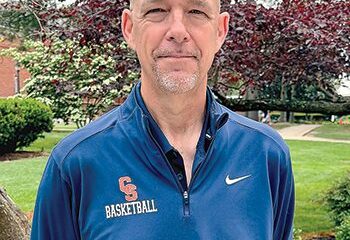
 Rec Sports2 weeks ago
Rec Sports2 weeks agoScott Barker named to lead CCS basketball • SSentinel.com
-
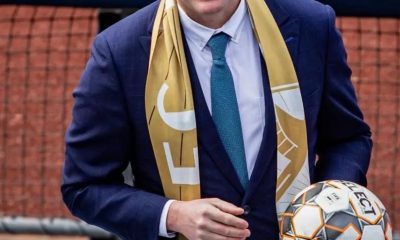
 Rec Sports2 weeks ago
Rec Sports2 weeks agoJ.W. Craft: Investing in Community Through Sports
-

 Motorsports2 weeks ago
Motorsports2 weeks agoNASCAR Penalty Report: Charlotte Motor Speedway (May 2025)
-

 NIL3 weeks ago
NIL3 weeks agoGreg Sankey: ‘I have people in my room asking, why are we still in the NCAA?’
-
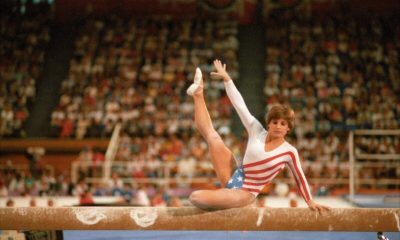
 College Sports2 weeks ago
College Sports2 weeks agoOlympic gymnastics champion Mary Lou Retton facing DUI charge































